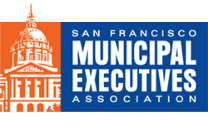2008 White Paper on Budgeting—ENTIRE DOCUMENT
EXECUTIVE SUMMARY
The Issue:
The City and County of San Francisco is facing unprecedented adverse economic conditions in the form of a staggering global economic crisis affecting cities and counties as well as a California state budget deficit estimated at $10 billion and growing. With San Franciscans seeking sustainability of vital programs and services, and transparency of process, San Francisco government is facing serious choices about what it can afford.
The City has experienced several years of difficult budgeting, relying on hiring freezes, mid-year cuts, one-time fixes and various other balancing techniques. These stopgap measures, however, cannot continue to substitute for policy discussions aimed at identifying core priorities and programs and creating budgets that adequately fund them.
As the senior professional managers of City government operations, the members of the Municipal Executives’ Association (MEA) are well aware of the consequences of the existing budget practices. As public servants, we are committed to seeking solutions that support the Mayor, the Board of Supervisors and the San Franciscans who are dependent upon the services and programs we provide.
The Context:
During the FY 2008-2009 budget development process, the Mayor’s Office asked all represented employee groups for contract concessions to help close the projected budget shortfall. MEA members agreed to step forward and offer concessions worth $5 million over the 2008 and 2009 fiscal years. In exchange, MEA requested that the City and County collaborate with us on a transparent and rigorous examination of the issues that make the budget process so challenging and identify potential solutions. This document is a key element of that effort.
The Process:
MEA engaged Management Partners to assist MEA with its efforts, including conducting a survey of MEA members designed to seek opinions from people who work with the budget system daily and compiling a comparison of budgeting practices of comparable municipalities.
MEA members responded in large numbers to the survey, providing opinions about the City’s budget policies and practices, and offering their ideas about ways to improve the process. The survey revealed that the managers in City departments believe the current budget process is overly cumbersome and does not provide an opportunity to focus on policy decisions that provide guidance on managing effectively within the ever-evolving landscape of competing priorities.
At the same time, information gathered from comparable municipalities offered many useful suggestions about how the City might realign the budget process to make it more collaborative, more responsive to changing economic conditions and provide a more direct and transparent model for resolving competing service priorities.
The Challenge:
- A budget practice of iterative cuts and add backs, performed in isolation by each reviewing party
- The use of ballot measures to set-aside funding for specific purposes leaving only a small slice of the overall City budget available in any given year for the vital services not funded by set- asides
- A Rainy Day Reserve Fund that limits access by only recognizing one end of the “fiscal emergency” spectrum
- An overly complex budget process with more steps and less long- range planning than other jurisdictions
- The lack of an independent budget entity to provide analysis from an organization-wide perspective
The Proposals:
- Establish a professional Office of Management and Budget (OMB), which will be responsible for annual budget development and financial planning for the City and County of San Francisco, and accountable to both the Mayor and the Board of Supervisors.
- Establish budget development 6(h gemenglish b)5.4w ineso both udget
The Rewards:
The potential rewards for positive change are plentiful. With a system that recognizes that policy decisions should drive budget decisions, the key priorities of policy makers can be identified, with dollars for those prioritiesallocated early in the process.
